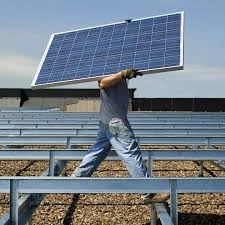Exploring Current Solar Panel Pricing and Trends for Homeowners and Businesses
Understanding Solar Panel Rates A Comprehensive Overview
In recent years, the market for solar energy has surged, driven by growing environmental awareness, advances in technology, and favorable government policies. As households and businesses increasingly turn to solar energy solutions, understanding solar panel rates—both installation and operational—is crucial for making informed decisions. This article delves into the factors influencing solar panel rates, current trends, and what potential buyers can expect in terms of costs.
Factors Influencing Solar Panel Rates
1. System Size and Type The price of solar panels largely depends on the size of the installation and the type of system chosen. Solar panels are typically sold in kilowatt-peak (kWp) ratings, with larger systems costing more. However, they also produce more energy, which can lead to greater savings in the long run. Additionally, different kinds of solar panels, such as monocrystalline, polycrystalline, and thin-film panels, come with varying costs.
2. Installation Costs Labor costs associated with installation can significantly impact overall solar panel rates. In areas where skilled labor is scarce or in high demand, installation costs may rise. Moreover, complicated roof designs or challenging sites can add to the labor expenses.
3. Location The geographical location of a solar installation affects the rates significantly. States with abundant sunlight tend to have better energy production rates, making solar investments more appealing. Furthermore, regional policies and incentives, such as tax credits and rebates, can alter the financial dynamics of solar panel purchases.
4. Government Incentives and Policies Most governments offer various incentives to promote solar energy adoption, which can drastically affect solar panel rates. For instance, in the United States, the federal solar tax credit allows homeowners to deduct a percentage of their solar panel installation costs from their federal taxes. Local and state incentives can further reduce upfront costs.
5. Quality and Warranty The quality of solar panels and associated components such as inverters and batteries impacts rates. Higher-quality products usually come with extended warranties, leading to better long-term performance. While these may come with a higher upfront cost, they can ultimately save money through improved efficiency and durability.
solar panel rates

Current Trends in Solar Panel Costs
As of 2023, the trend in solar panel prices has been generally downward, thanks to technological advancements and increased competition within the industry. The average cost of solar panels has decreased significantly over the past decade, making solar energy more accessible to a larger section of the population. On average, the installation price for residential solar systems ranges from $15,000 to $25,000 before incentives, depending on factors such as size and installation complexity.
In addition, the increasing availability of financing options, such as solar loans and leasing programs, has enabled more homeowners to consider solar panel systems without the need for a large initial investment. This accessibility is expected to continue driving the adoption of solar energy.
The Financial Implications of Going Solar
Investing in solar panels can yield significant long-term savings. Homeowners who switch to solar energy typically see a reduction in their monthly electricity bills, sometimes by as much as 50% or more, depending on their energy consumption and the size of their solar system. Moreover, solar energy can increase property values, making it not just an environmentally friendly choice but a financially savvy one as well.
Conclusion
In conclusion, understanding solar panel rates is essential for anyone considering a transition to solar energy. By carefully evaluating the factors that influence these rates, such as system size, installation expertise, location, and available incentives, prospective buyers can make informed decisions that align with their energy needs and financial goals. As technology continues to evolve and prices decrease, the dream of a sustainable, solar-powered future becomes increasingly attainable for all. Investing in solar energy is not just about reducing electricity bills; it's about making a responsible choice for the planet, paving the way towards a cleaner, more efficient energy future.
-
Understanding the Advantages of Solar String Inverters for Your Energy SystemNewsApr.29,2025
-
Choosing the Right PV Inverter: A Comprehensive GuideNewsApr.29,2025
-
The Future of Solar Power: Exploring Bifacial Solar PanelsNewsApr.29,2025
-
The Complete Guide to Solar Panels: Efficiency, Cost, And InstallationNewsApr.29,2025
-
The Best Options for Efficiency and Cost-EffectivenessNewsApr.29,2025
-
Harnessing the Power of Off-Grid Solar Inverters for Energy IndependenceNewsApr.29,2025







